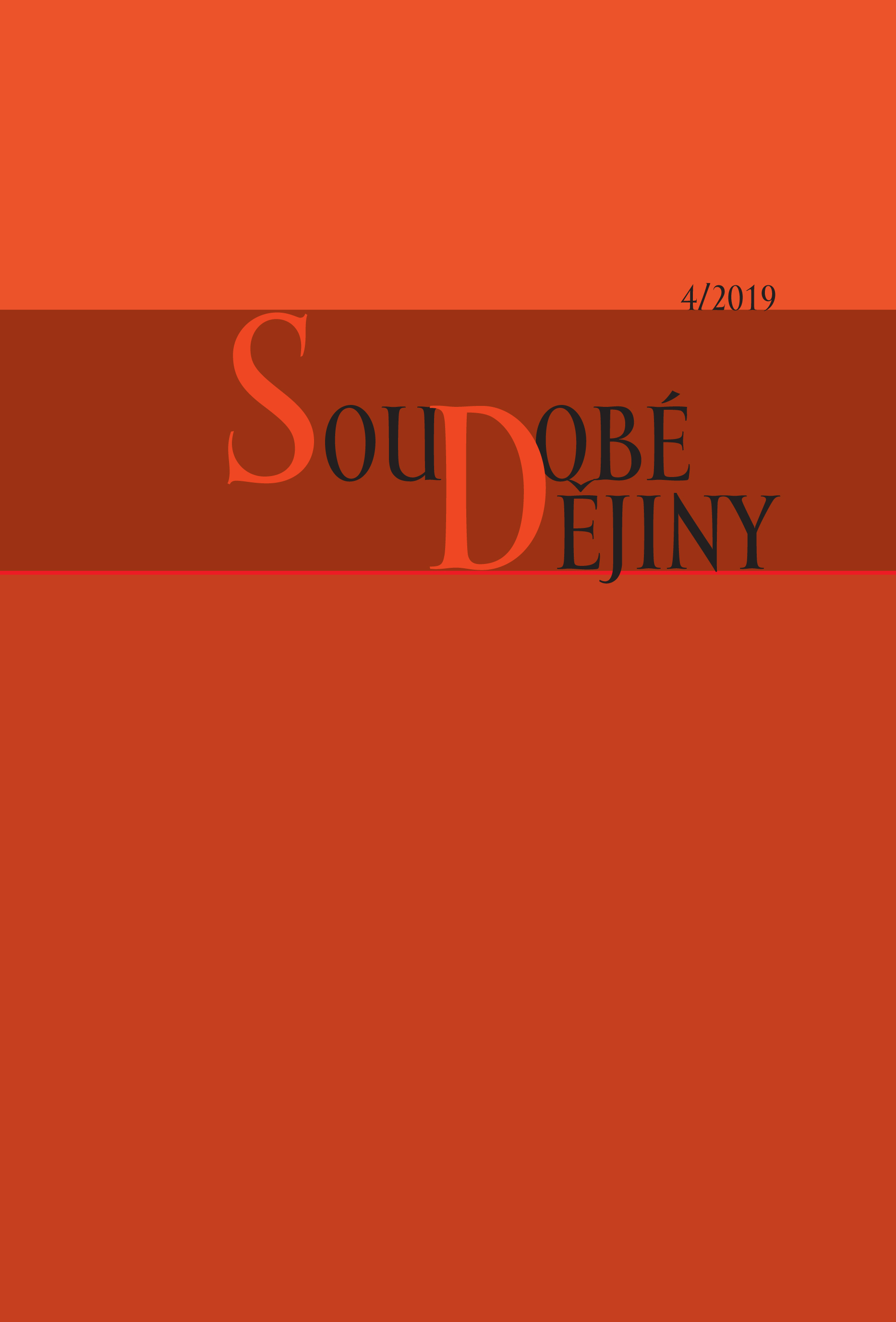Tři diskuse o studentské každodennosti za socialismu
Three discussions on students’ everydayness during the socialist period
Author(s): Michael PolákSubject(s): History, Comparative history, Political history, Social history, Recent History (1900 till today), Post-War period (1950 - 1989), History of Communism
Published by: AV ČR - Akademie věd České republiky - Ústav pro soudobé dějiny
Keywords: Czech Lands; Slovakia; Poland; Czechoslovakia; students; everydayness; state socialism; post-Stalinism
Summary/Abstract: Nebřenský, Zdeněk. Marx, Engels, Beatles: Myšlenkový svět polských a československých vysokoškoláků 1956–1968. (České moderní dějiny, Vol. 1.) Prague: Academia and Masarykův ústav a Archiv Akademie věd ČR, 2017, 422 pp. + illustrations, ISBN 978-80-200-2668-2 and 978-80-87782-66-8. The publication titled "Marx, Engels, Beatles: Mental world of Polish and Czechoslovak university students 1956–1968" deals with three areas which were closely related to everyday life of male and female students in the system of state socialism – students’ marriages, planned employment and students’ clubs – from a perspective of a comparison of Bohemia and Moravia, Slovakia and Poland during the post-Stalinist period. The author perceives the latter as a specific time; following the disclosure of the so-called personality cult in 1956, a new socialist ideology was formulated, which was supposed to become an alternative to both Stalinism and capitalism. The connecting link of the three topic is an increasing accent on the differentiation of interests of various social groups which the author interprets as one of the principal aspects of the post-Stalinist ideology. The reviewer admits the author has a deep insight into the matter, appreciating particularly his presentation of a number of local and nationwide discussions which somewhat contradict the general opinion on the state socialism’s rigidity. On the other hand, he reprimands the author that his interpretation is not supported by enough arguments, lacks a clear interpretation line and also an appropriate generalization. It also does not indicate clearly enough what constitutes the core of the post-Stalinist ideology and whether it is, as a matter of fact, even possible to refer to post-Stalinism as a specific historical period.
Journal: Soudobé Dějiny
- Issue Year: XXVI/2019
- Issue No: 4
- Page Range: 614-617
- Page Count: 4
- Language: Czech

